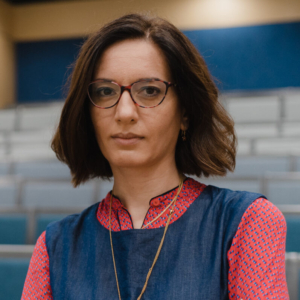Privatization, Private Tutoring & the Rise of Non-State Actors in Education
by Nutsa Kobakhidze
Assistant Professor in Comparative and International Education
Social Contexts and Policies of Education, Faculty of Education, The University of Hong Kong
My recommended FreshEd episodes reflect my research interests and teaching. For more than 10 years, I’ve been exploring privatization of education through private tutoring or, as it is often called, ‘shadow education’. I have focused on teachers’ identities as tutors and the dilemmas accompanying their dual role in low- and middle-income countries such as Georgia, Cambodia, and Myanmar. In the context of more affluent societies such as Hong Kong, I have considered the impact of social class on parental demand for private tutoring and the associated mechanisms of inequality reproduction.
In researching these topics, I’ve wondered what the enabling conditions, policies, and global and local drivers are for creating education markets at all levels of education. With UNESCO’s 2021 GEM Report focusing on so-called non-state actors in education, this seems a timely theme.
With most of us multitasking amid pandemic conditions, podcasts have become an increasingly valued medium for learning. The FreshEd episodes I mention here are also ones that I recommend in my courses — while students may skip readings, most will listen to these episodes.
First, Toni Verger discusses how privatization directly impacts education policy and how and why governments buy into it. Coming from a political economy perspective, he highlights the importance of privatization’s ‘soft drivers’; the less perceptible mechanisms of meaning construction, truth production, and legitimation. Stephen Ball continues this discussion by focusing on the neoliberal mode of education as an enabler, considering how the enactment of national education policies benefits private sector interests. He also invites us to explore policy mobility, asking how these privatization policies move worldwide.
Gita Steiner-Khamsi brings together insights from globalisation studies, system theory, and policy borrowing research. In discussing the impact of the global education industry, she reminds us that education is lucrative, therefore attracting transnational organizations and global corporations. She discusses the neoliberal reform environment and the knowledge economy as potential reasons for the boom in non-state actor involvement in public education in recent decades.
Diverging from this discussion of the issues with education privatization at a global level, Mark Bray focuses on micro-processes of privatization in the form of private tutoring. In the light of his new book on ‘Shadow Education in Africa,’Mark Bray raises important concerns of equity and access to education. He challenges us to look into the promise of free, equitable, and fair education by highlighting the hidden costs of education. This episode is a must-listen for those interested in the reasons why schooling is no longer enough or what makes parents think so.
Will Brehm’s ability to create a lively and stimulating discussion with guests brilliantly responds to the podcast’s promise to make ‘complex ideas easily understood.’ These FreshEd podcast episodes are not only a great resource for teaching but also a source of ideas.
May 1, 2022







